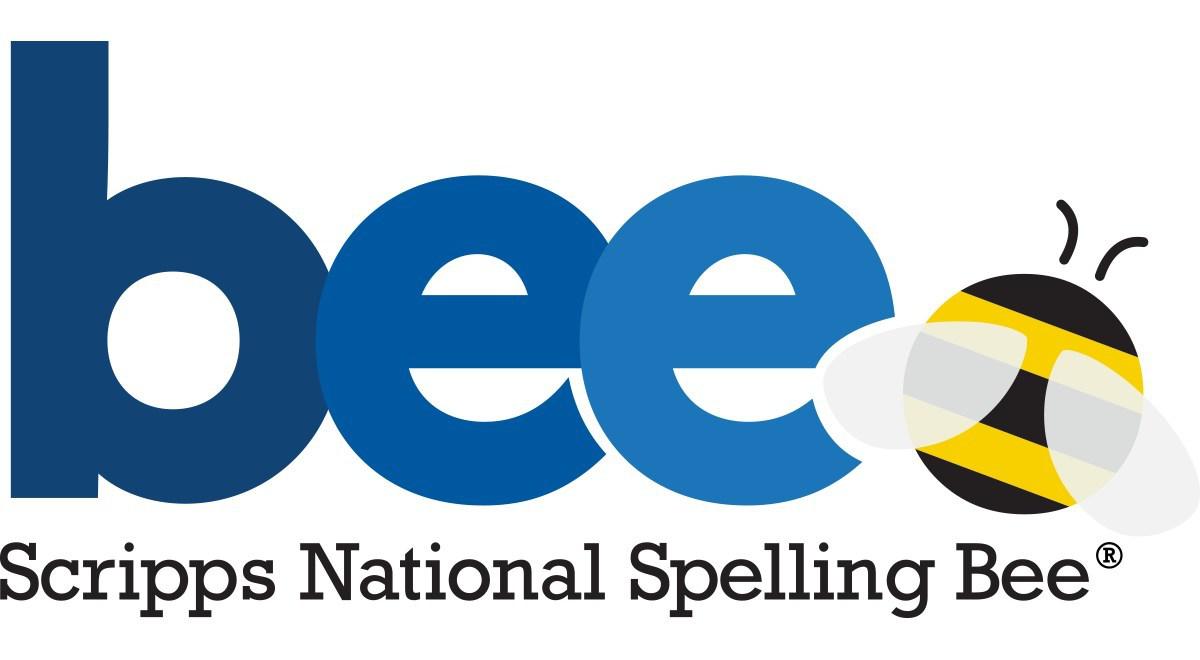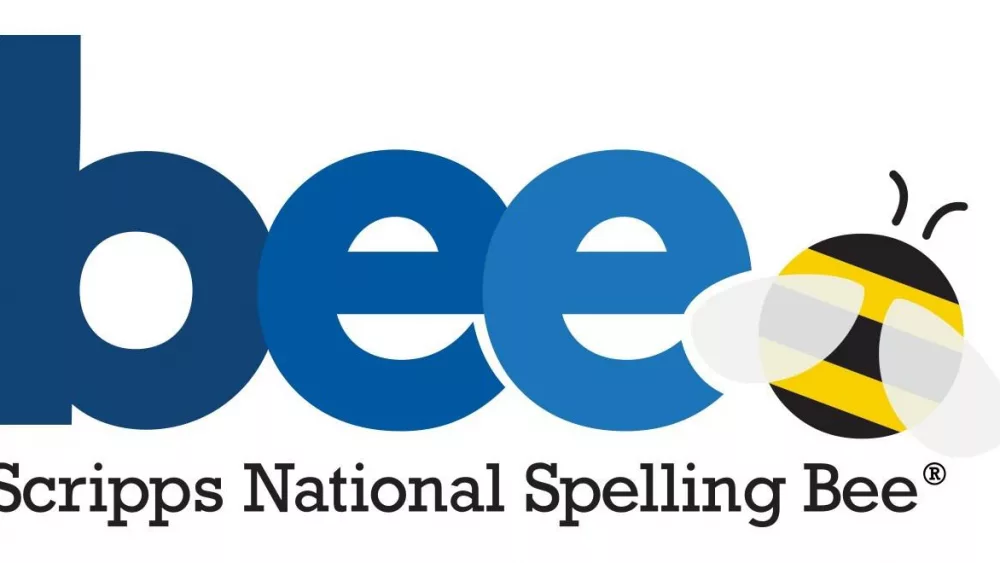
It’s official: Visit Hopkinsville will be a regional partner with the Scripps National Spelling Bee in 2023.
Brooke Jung, executive director for Visit Hopkinsville, announced the news Wednesday afternoon — clarifying that this will be the Commonwealth’s only guarantee a Kentucky student will have for a chance at the highly-respected competition.
As the exclusive regional partner, Visit Hopkinsville will sponsor a regional spelling bee competition, set for 2 PM Sunday, March 26 in the Alhambra Theatre. Three regional champions will then be sent to nationals in May, where they’ll battle the country’s top spellers for the Scripps Cup.
Jung said her organization was awarded two years of financial support for this event, courtesy of the American Rescue Plan Act, the Kentucky Department of Tourism and the office of Governor Andy Beshear, as efforts continue to reinvigorate lost revenues in tourism dollars from the COVID-19 pandemic.
Jung also said planning efforts for the event are “underway,” with representatives from her office, the Pennyroyal Arts Council and the Christian County Literacy Council currently involved.
In order to qualify for this regional spelling bee, student must attend a school enrolled in the Scripps National Spelling Bee Program. The deadline for schools to register is February 15. The top 40 school champions from this 29-county region will then move on to this event in Hopkinsville.
Promoting child literacy since 1925, the Scripps National Spelling Bee actually formed when nine newspapers agreed to host the first efforts.
Now, almost a century later, the competition involves more than 11 million children annually.
Merriam-Webster’s unabridged dictionary serves as the main source for the competition, which is set for May 30 through June 1 at the Gaylord National Hotel and Convention Center in National Harbor, Maryland.
For over 50 years, the Bee and Merriam-Webster have worked together to bring interesting, meaningful words to the best spellers across the country.
Additional sponsorship opportunities are available. Contact Jung (270) 887-2300 for more information.
Scripps Winning Words Through The Years
(per yourdictionary.com)
Gladiolus (1925): A tropical plant with sword-shaped leaves and funnel-shaped flowers
Cerise (1926): A deep to vivid purplish red, cherry-colored
Abrogate (1927): To do away with or abolish, especially by authority
Knack (1928): A clever skill or special talent for doing something
Luxuriance (1929): The property of being characterized by rich or profuse growth
Albumen (1930): The white of an egg, consisting mainly of albumin and water
Foulard (1931): A lightweight twill or other plain-woven material with a printed pattern
Invulnerable (1932): Immune to attack, impossible to damage
Torsion (1933): The process or condition of twisting or being twisted
Brethren (1934): Members of a group (especially a male religious order), brothers
Intelligible (1935): Capable of being understood
Eczema (1936): A noncontagious skin disorder characterized by inflammation and itchy scales
Promiscuous (1937): A lack of discrimination or a person who casually has sex
Sanitarium (1938): A special health care facility for treating people with chronic disease
Canonical (1939): Conforming to orthodox or well-established rules or patterns
Therapy (1940): Treatment of illness, injury or disability
Initials (1941): An abbreviation of a person’s name using the first letters of their first, last and sometimes middle name
Sacrilegious (1942): Acting or speaking very disrespectfully toward something sacred
Semaphore (1946): A visual signaling apparatus with flags, lights or moving arms
Chlorophyll (1947): The green pigments found in plant cells for photosynthesis
Psychiatry (1948): The branch of medicine concerned with mental and emotional disorders
Onerous (1949): Something that is troublesome, burdensome or difficult to do
Meticulosity (1950): The quality of showing extreme care and concern for details
Insouciant (1951): Nonchalant, carefree, casually unconcerned or indifferent
Vignette (1952): A brief skit or retelling of something that occurred
Soubrette (1953): A young women regarded as frivolous or flirtatious
Transept (1954): The part of a cross-shaped church at right angles to the long, main section
Crustaceology (1955): The branch of zoology that studies crustaceans like shrimp and crabs
Condominium (1956): An individual residential or commercial unit in a multi-unit building
Schappe (1957): To use a process of fermentation to remove sericin from silk
Syllepsis (1958): A grammatical construction where one word modifies multiple words, but agrees with only one in gender, number or case
Catamaran (1959): A boat with two parallel floats, propelled by sails or paddles
Eudaemonic (1960): Producing happiness and/or well-being
Smaragdine (1961): Having the color of or related to emeralds
Esquamulose (1962): Having smooth skin, not covered in scales
Equipage (1963): Equipment, furnishings or accessories
Sycophant (1964): A person who flatters people of wealth or influence for personal gain
Eczema (1965): A skin condition characterized by redness, itching and scaly lesions
Ratoon (1966): A shoot growing from the root of a plant that’s been cut
Chihuahua (1967): A small dog breed with pointed ears, originally from Mexico
Abalone (1968): A type of edible sea mollusk with a mother-of-pearl shell lining
Interlocutory (1969): A provisional decree given before a case’s final decision
Croissant (1970): A flaky, crescent-shaped roll or pastry of leavened dough
Shalloon (1971): A twilled woolen fabric used for coat linings
Macerate (1972): To soften or separate by soaking in a liquid
Vouchsafe (1973): To give or grant something either graciously or condescendingly
Hydrophyte (1974): A plant growing only in water or very wet earth
Incisor (1975): One of the front teeth of a mammal, between the canines
Narcolepsy (1976): A neurological disorder characterized by episodes of sudden, involuntary sleep
Cambist (1977): An expert in trading foreign currencies
Deification (1978): The act of embodying the qualities of a god
Maculature (1979): Junk mail and other paper waste
Elucubrate (1980): To solve, write or compose by working long and diligently
Sarcophagus (1981): A stone coffin, often on display in a monumental tomb
Psoriasis (1982): A chronic skin disease with scaly, reddish patches
Purim (1983): A Jewish holiday commemorating the deliverance of the Jews by Haman
Luge (1984): A racing sled where the rider(s) lie face up with feet forward
Milieu (1985): A person’s social setting or cultural environment
Odontalgia (1986): A toothache
Staphylococci (1987): The spherical bacteria responsible for MRSA infections
Elegiacal (1988): Expressing mourning and sorrow, fit for an elegy
Spoliator (1989): A person who plunders, pillages or robs
Fibranne (1990): A spun rayon fabric often woven to resemble linen
Antipyretic (1991): Reducing or tending to reduce fever
Lyceum (1992): A hall for public lectures, discussions and entertainment
Kamikaze (1993): Relating to a suicide attack by Japanese pilots during World War II
Antediluvian (1994): Extremely old or old-fashioned, before the biblical Great Flood
Xanthosis (1995): A yellowing discoloration of tissues through degeneration
Vivisepulture (1996): The practice of burying a person alive
Euonym (1997): A name well suited to a person, place or thing
Chiaroscurist (1998): A painter who uses light and shade to create a sense of volume
Logorrhea (1999): Excessive talkativeness or use of words
Demarche (2000): A maneuver or course of action, often as a protest or warning
Succedaneum (2001): A substitute, particularly in medicine
Prospicience (2002): Foresight, seeing ahead or knowing in advance
Pococurante (2003): Indifferent or apathetic
Autochthonous (2004): Native to the place where found, indigenous
Appoggiatura (2005): An embellishing, rhythmically strong dissonant grace note in music
Ursprache (2006): A reconstructed, hypothetical parent language
Serrefine (2007): Small forceps used for clamping an artery in surgery
Guerdon (2008): A reward, recompense or prize
Laodicean (2009): Of or related to the ancient city of Laodicea in modern day Turkey
Stromuhr (2010): An instrument for measuring the velocity of blood flow
Cymotrichous (2011): Having wavy hair
Guetapens (2012): Ambush or trap
Knaidel (2013): A type of Jewish dumpling eaten during Passover
Stichomythia (2014): A form of verbal sparring with alternate lines in ancient Greek drama
Feuilleton: A short literary essay or sketch
Scherenschnitte (2015): The art of cutting continuous paper designs, originating in 1500s Switzerland and Germany
Nunatak: An isolated mountain peak or ridge protruding from a glacier’s surface
Feldenkrais (2016): A somatic educational system for reducing pain or movement limitations
Gesellschaft: A hypothetical mode of society with self-serving individuals and impersonal ties
Marocain (2017): A heavy crepe fabric with a cross-ribbed texture
Koinonia (2018): Communion by intimate participation, as with the Christian church
Auslaut (2019): The last sound of a word or syllable
Erysipelas: An acute infectious disease of the skin with local inflammation and fever
Bougainvillea: Woody shrubs or vines with small flowers and large red or purple bracts
Aiguillette: An ornamental corn hung in loops on the shoulder of certain military uniforms
Pendeloque: A drop-shaped diamond or gem used as a pendant
Palama: The webbing on the feet of aquatic birds
Cernuous: Nodding, drooping, or hanging downward, as in a flower or bud
Odylic: Of or pertaining to odes, a lyric poem honoring a person or subject
2020: The 2020 Scripps National Spelling Bee was canceled due to the pandemic.
Murraya (2021): A genus of tropical Asiatic and Australian trees.
Moorhen (2022): The female of the red grouse.
(NOTE: For the 2022 National Spelling Bee, “moorhen” was, more specifically, the final winning word. There was no single winning word, since the winner was determined via a multi-word “spell-off” between the last two contestants.)






